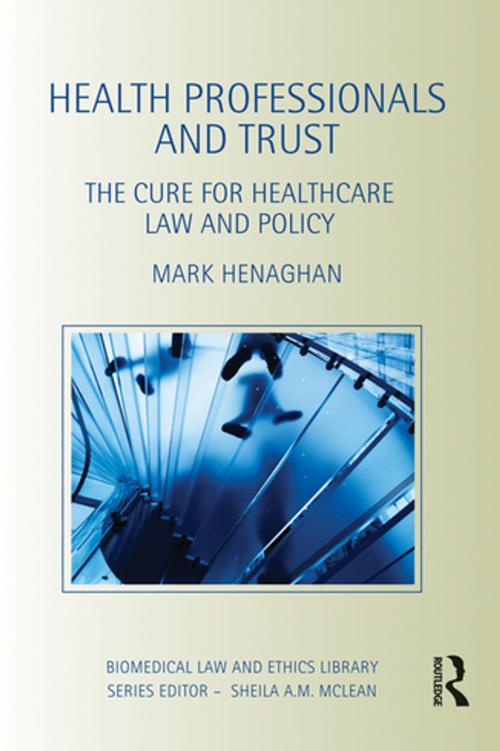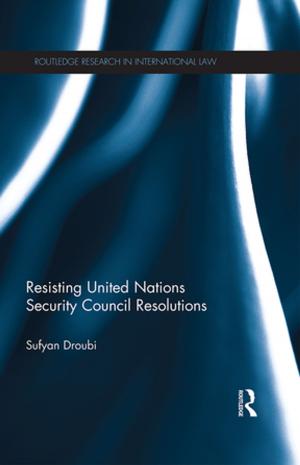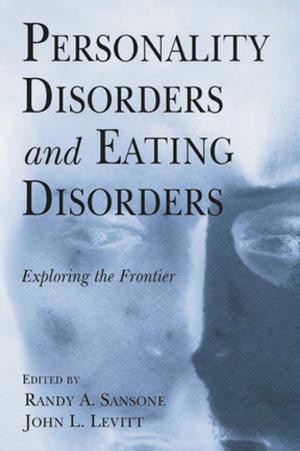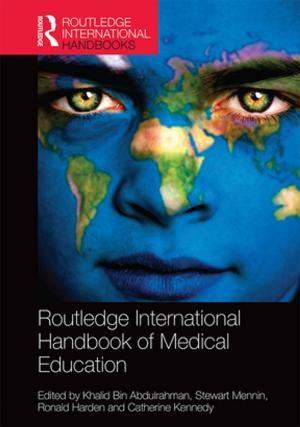Health Professionals and Trust
The Cure for Healthcare Law and Policy
Nonfiction, Health & Well Being, Health, Health Care Issues, Reference & Language, Law| Author: | Mark Henaghan | ISBN: | 9781136621055 |
| Publisher: | Taylor and Francis | Publication: | March 12, 2012 |
| Imprint: | Routledge-Cavendish | Language: | English |
| Author: | Mark Henaghan |
| ISBN: | 9781136621055 |
| Publisher: | Taylor and Francis |
| Publication: | March 12, 2012 |
| Imprint: | Routledge-Cavendish |
| Language: | English |
An ever increasing number of codes of conduct, disciplinary bodies, ethics committees and bureaucratic policies now prescribe how health professionals and health researchers relate to their patients. In this book, Mark Henaghan argues that the result of this trend towards heightened regulation has been to undermine the traditional dynamic of trust in health professionals and to diminish reliance upon their professional judgement, whilst simultaneously failing to trust patients to make decisions about their own care.
This book examines the issue of health professionals and trust comparatively in a number of countries including the USA, Canada, Australia, New Zealand and the UK. The book draws upon historical analysis of legislation, case law, disciplinary proceedings reports, articles in medical and law journals and protocols produced by management teams in hospitals, to illustrate the ways in which there has been a discernable shift away from trust in healthcare professionals. Henaghan argues that this erosion of trust has the potential to dehumanise the unique relationship that has traditionally existed between healthcare professionals and their patients, thereby running the risk of turning healthcare into a mechanistic enterprise controlled by a ‘management processes' rather than a humanistic relationship governed by trust and judgement.
This book is an invaluable resource for students and scholars of medical law and medical sociology, public policy-makers and a range of associated professionals, from health service managers to medical science and clinical researchers.
An ever increasing number of codes of conduct, disciplinary bodies, ethics committees and bureaucratic policies now prescribe how health professionals and health researchers relate to their patients. In this book, Mark Henaghan argues that the result of this trend towards heightened regulation has been to undermine the traditional dynamic of trust in health professionals and to diminish reliance upon their professional judgement, whilst simultaneously failing to trust patients to make decisions about their own care.
This book examines the issue of health professionals and trust comparatively in a number of countries including the USA, Canada, Australia, New Zealand and the UK. The book draws upon historical analysis of legislation, case law, disciplinary proceedings reports, articles in medical and law journals and protocols produced by management teams in hospitals, to illustrate the ways in which there has been a discernable shift away from trust in healthcare professionals. Henaghan argues that this erosion of trust has the potential to dehumanise the unique relationship that has traditionally existed between healthcare professionals and their patients, thereby running the risk of turning healthcare into a mechanistic enterprise controlled by a ‘management processes' rather than a humanistic relationship governed by trust and judgement.
This book is an invaluable resource for students and scholars of medical law and medical sociology, public policy-makers and a range of associated professionals, from health service managers to medical science and clinical researchers.















